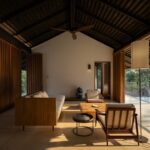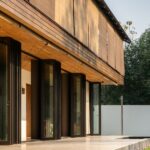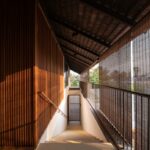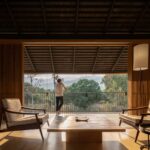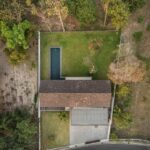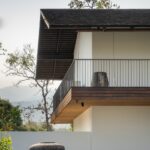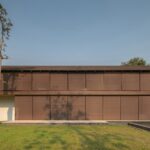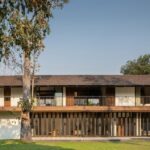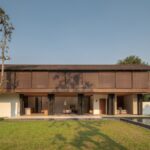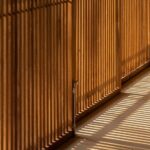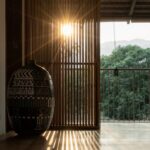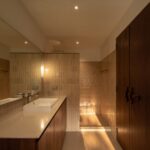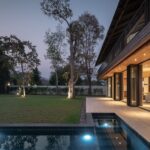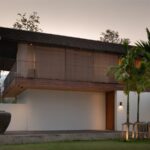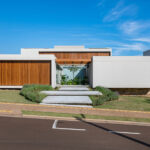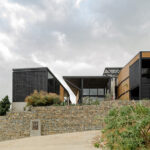Situated near the base of a mountain, the Nong Ho 17 House offers breathtaking views of its scenic surroundings. The design of the house, stretching from north to south, allows every room to bask in the beauty of the landscape. The layout defines a private garden and swimming pool to the west, while a parking area and small garden occupy the east.
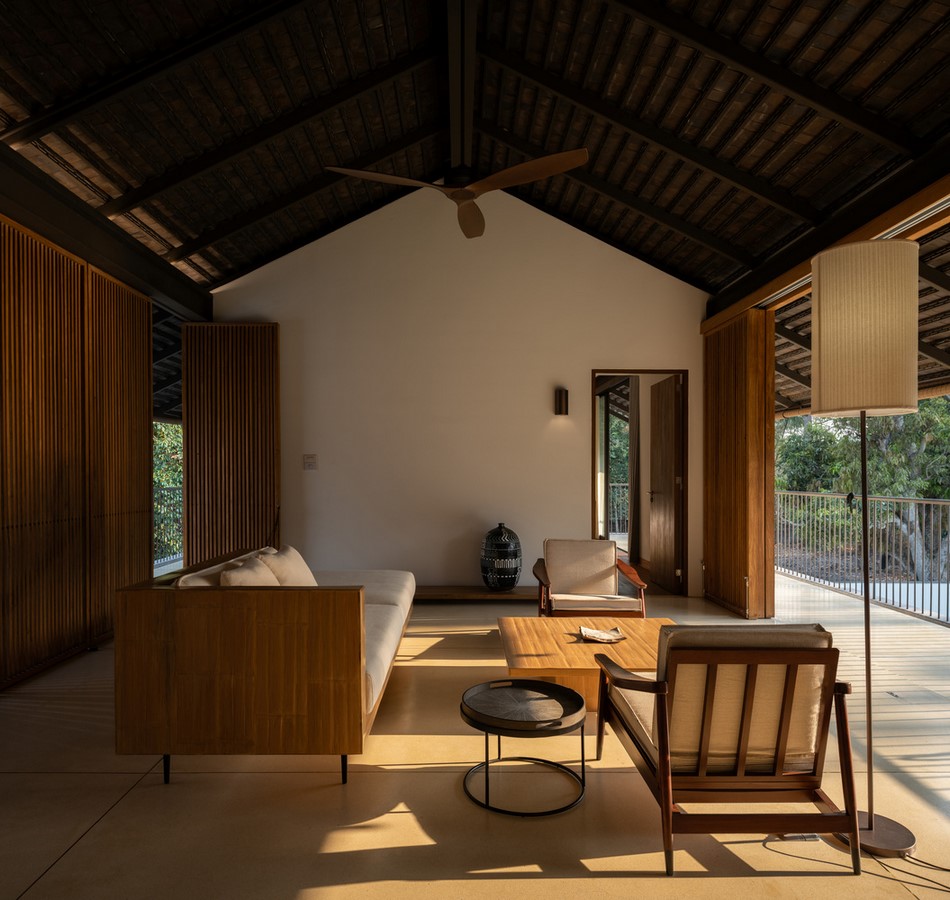
Thoughtful Architecture
The first floor features an open living space, with a pantry area on one end and a guest room on the other. Upstairs, the private quarters comprise two bedrooms connected by an open-air living area. Local materials play a pivotal role in the design, with floor and roof tiles crafted by nearby artisans and reclaimed teak sourced from an abandoned house.
Sustainable Design
Environmental considerations are paramount in the design of the Nong Ho 17 House. Cross ventilation in living areas reduces the need for air-conditioning, while extended gable roofs and bamboo louvers prevent excessive sunlight and rain infiltration. These design elements, coupled with the use of natural materials, create a harmonious environment that embraces cool breezes, natural light, and the surrounding nature.
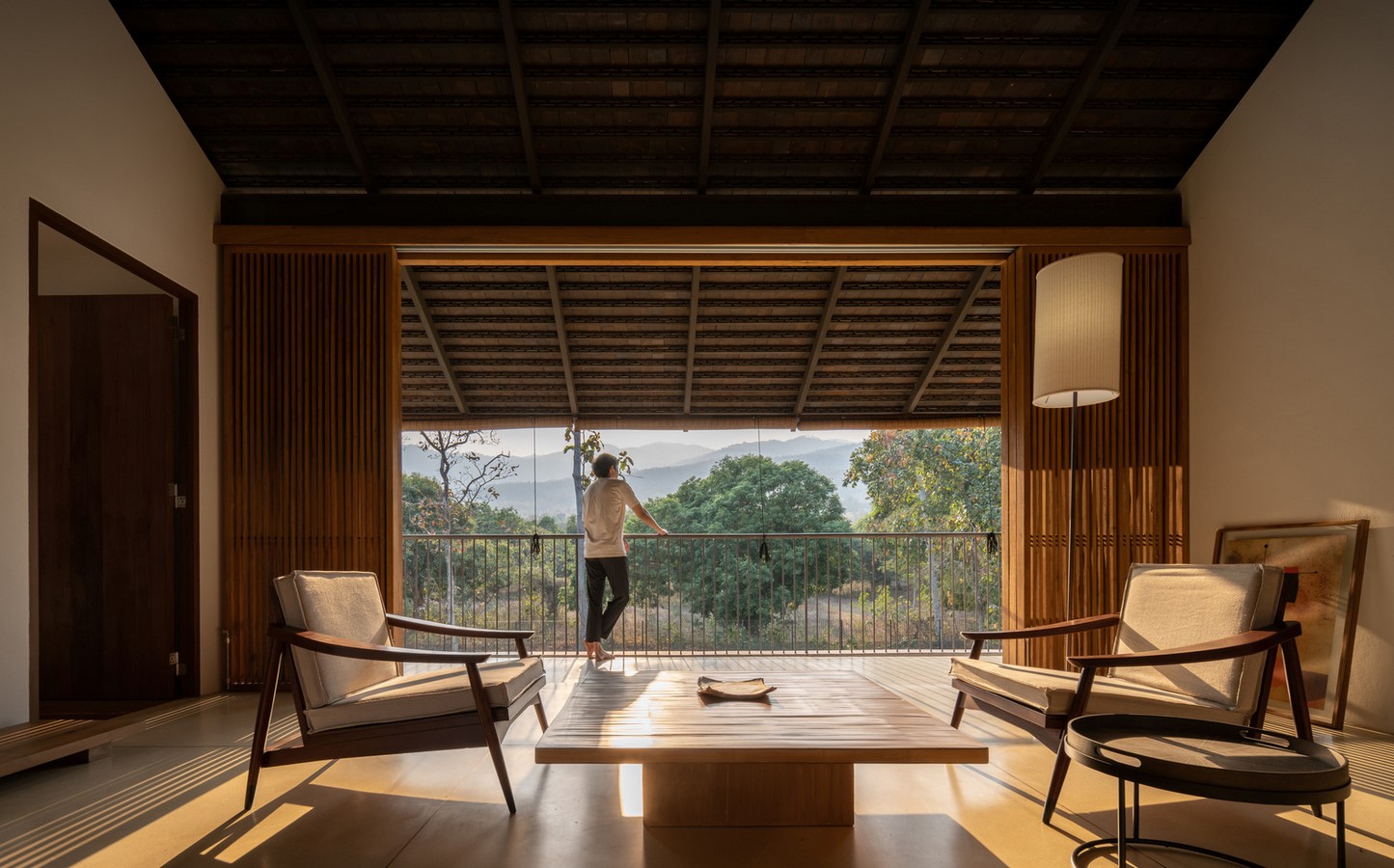
Harmonizing with Nature
The project prioritizes simplicity and local adaptation, employing construction methods suited to the tropical climate of Chiang Mai. By integrating local materials and construction techniques, the Nong Ho 17 House embodies the spirit of Asian architecture while promoting sustainability. It serves as a testament to the notion that sustainable design can be both aesthetically pleasing and environmentally sensitive without relying on advanced technology.
